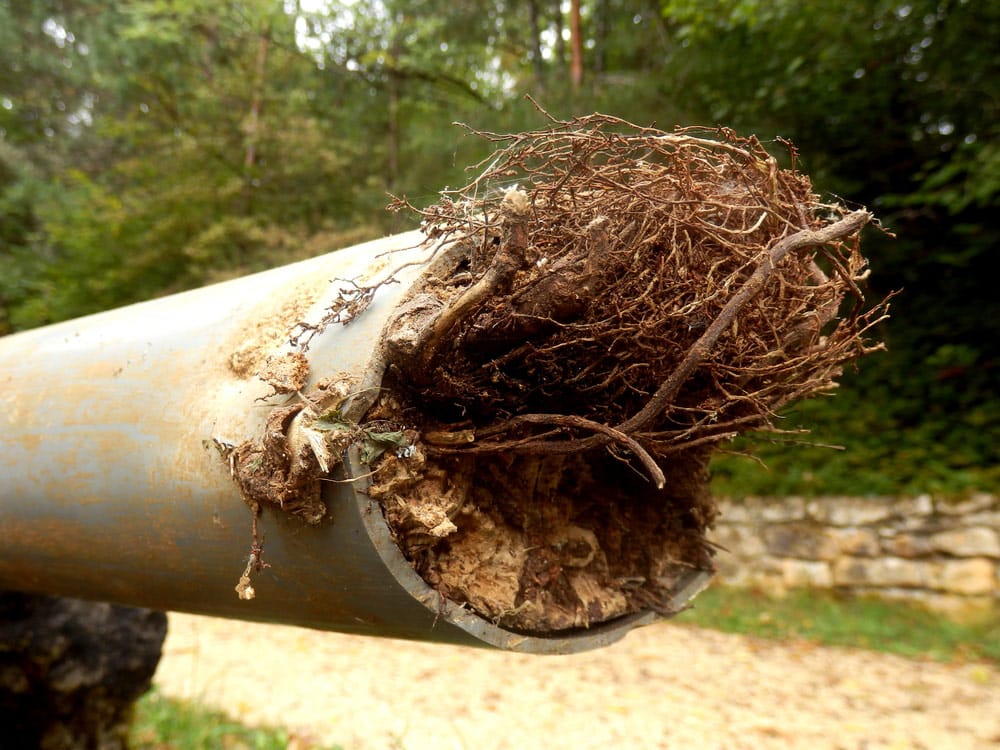Have you ever encountered a slow-draining sink or a toilet that fails to flush properly? This common household issue is often attributed to a sewer line blockage. By understanding the common causes of these blockages, you can avoid significant hassle and expense. Let us explore the most frequent reasons behind sewer line blockages and how to prevent them effectively.
Tree Roots
One of the most insidious causes of sewer line blockages is tree roots. Trees naturally seek out water sources and your sewer line is a prime target. Roots can penetrate tiny cracks in the pipes and, over time, grow larger, obstructing wastewater flow.
Prevention Tip: Regular inspections can help identify root intrusion early. Consider replacing older clay pipes with PVC pipes, less susceptible to root damage. Installing a root barrier between trees and sewer lines can also help.
Grease Buildup
Grease and fat may seem harmless, but they can cause significant blockages when poured down the drain. As grease cools, it solidifies and adheres to the inner walls of pipes, gradually narrowing the passageway.
Prevention Tip: Never pour grease down the drain. Instead, dispose of it in a container and throw it in the trash. Regularly flushing your drains with hot water can also help to break down any minor buildup.
Foreign Objects
Flushing inappropriate items down the toilet is another common cause of sewer line blockages. Items like wet wipes, sanitary products and even small toys can easily get lodged in the pipes, causing a blockage.
Prevention Tip: Only flush toilet paper and human waste. Educate your household members about what should and shouldn’t be flushed. Installing drain strainers can also prevent larger objects from entering the sewer system.
Hair
Hair can accumulate in drains and create blockages over time. This is particularly common in bathroom sinks and shower drains.
Prevention Tip: Use a drain guard to catch hair before it goes down the drain. Regularly clean out the guard to prevent hair from building up.
Soap Scum
Soap, particularly traditional bar soap, can leave behind a residue known as soap scum. This can combine with hair and other debris to create a stubborn blockage.
Prevention Tip: Switch to liquid soap, which is less likely to cause scum buildup. Additionally, regular cleaning of drains with a mixture of hot water, baking soda and vinegar can help keep them clear.
Toilet Paper Overuse
While toilet paper is designed to break down in water, excessive use can lead to blockages. This is especially true if you’re using thicker or multi-ply toilet paper.
Prevention Tip: Use toilet paper sparingly and opt for thinner varieties that break down more easily. Encourage children and other household members to be mindful of how much they use.
How Can Homeowners Prevent Sewer Line Blockages?
Preventing sewer line blockages is largely about being mindful of what goes down your drains and performing regular maintenance. Here are some general tips:
- Regular Inspections: Have your sewer lines inspected by a professional plumber regularly. This can catch potential issues before they become serious problems.
- Proper Disposal: Avoid flushing anything other than human waste and toilet paper. Dispose of grease, fat and other solids in the trash, not down the sink.
- Maintenance: Use enzyme-based drain cleaners monthly to keep pipes clear. Avoid chemical drain cleaners, as they can damage pipes.
- Landscaping: Be mindful of where you plant trees and shrubs. Keep them away from sewer lines to prevent root intrusion.
Reliable Sewer Line Solutions: Book Your Service With Us!
At Expert Plumbing & Solar Services, we diagnose and resolve all types of plumbing issues, including sewer line blockages. Our skilled plumbers in Bathurst are equipped with the latest technology to provide efficient and reliable services. Whether you need regular maintenance or emergency assistance, we are here to help you keep your plumbing systems in top condition. Don’t let sewer line blockages disrupt your life—contact us today for all your needs related to plumbing in Bathurst.





